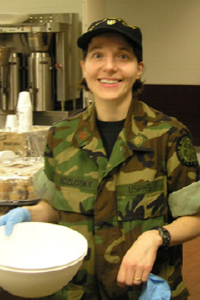Speaker Bios

Tanya Agurs-Collins, PhD, RDN
BIOGRAPHY
Dr. Agurs-Collins has been a Program Director/Nutritionist at the National Cancer Institute (NCI), Division of Cancer Control and Population Sciences (DCCPS), Behavioral Research Program (BRP), Health Behaviors Research Branch (HBRB), since October 2004. Before joining NCI, Dr. Agurs-Collins was a tenured Associate Professor in the Department of Medicine at Howard University College of Medicine and a nutritional epidemiologist at the Howard University Cancer Center in Washington, DC. During that time, Dr. Agurs-Collins conducted research in the areas of sex steroid hormones, growth hormones, nutrition, physical activity, and obesity in breast, prostate, and colorectal cancer risk.
Dr. Agurs-Collins received her Doctorate in Nutrition, with an epidemiology focus, and Master of Science degree in Nutrition in Public Health from the Pennsylvania State University. She is a graduate of the Dietetic Internship Program at Howard University Hospital and a registered dietitian nutritionist with the American Dietetic Association. Dr. Agurs-Collins has served as a member of advisory boards, a reviewer for professional journals and has received several awards.
Research Area: Lifestyle factors, hormones, obesity and cancer risk in ethnic/minority populations; gene-environment-behavior interactions and obesity/cancer risk; policy research.

David J. Baer, PhD
BIOGRAPHY
Dr. Baer is a Supervisory Research Physiologist with the U.S. Department of Agriculture’s Beltsville Human Nutrition Research Center located in Beltsville, Maryland. The Center is part of the Agricultural Research Service, which is the U.S. Department of Agriculture’s principal in-house science research agency. Dr. Baer has worked with the Department for over 20 years and is research leader of the Center’s Food Components and Health Laboratory and director of the Center's Human Study Facility.
Dr. Baer conducts controlled dietary intervention studies to investigate the relationship between diet and the risk for chronic degenerative diseases, especially cardiovascular disease, cancer and diabetes in people. His research also includes studies on the health impacts of weight gain and determining the calorie content of foods. Some of the dietary interventions he has investigated include the effects of different types of dairy protein, soy protein, fats and fatty acids, fiber, margarine, butter, plant sterols, salad dressings, nuts, whole grains, berries, alcohol and tea on overall nutrition and health. In addition to dietary intervention studies, Baer is involved in research studies to validate food survey methodologies and to develop new methods for dietary assessment. He is the author of numerous scientific articles and book chapters and has been invited to present his research findings nationally and internationally.
Dr. Baer earned his bachelor’s degree from the University of Illinois and his doctorate in nutrition from Michigan State University. Prior to joining the Department of Agriculture, he worked as a private consultant in nutrition. He is active in several professional societies, and a member of the American Heart Association, American Society of Nutrition, American Oil Chemists Society, Comparative Nutrition Society, and the Institute of Food Technologists.

Oliver Bogler, PhD
BIOGRAPHY
Dr. Bogler joined NCI in 2020 as the director of the Center for Cancer Training. As director, he oversees NCI’s training and career development programs, which prepare scientists both within NCI (intramurally) and around the country (extramurally) to advance cancer research.
Dr. Bogler studied Natural Sciences at the University of Cambridge, completed his doctoral work at the Ludwig Institute for Cancer Research in London, and did postdoctoral training at the Salk Institute and the Ludwig Institute, San Diego Branch. He has held faculty appointments at Virginia Commonwealth University, Henry Ford Hospital, and the University of Texas MD Anderson Cancer Center, where he also served as director of basic research for the Brain Tumor Center. His research focused on EGFR signaling and novel platinum compounds in glioblastoma.
In 2020, he became MD Anderson’s vise president for global academic programs, where he managed a network of 35 sister institutions in 22 countries with a total investment in global cancer collaborations of $24,000,000 over 7 years. In 2011, he was also appointed senior vice president for academic affairs, where he stewarded MD Anderson’s education mission, including career development and accreditation, and oversaw 300 people who supported 1,700 faculty members and more than 2,000 trainees and students.
Before coming to NCI, Dr. Bogler was the chief operating officer at the ECHO Institute where he supported efforts to improve services to underserved populations in health care, education, and beyond by making expert knowledge more accessible.

Heather Bowles, PhD
BIOGRAPHY
Dr. Bowles is a Physical Activity Epidemiologist with the Division of Cancer Prevention, National Cancer Institute. Before coming to the National Cancer Institute, Dr. Bowles held a research academic appointment in Australia at the Centre for Physical Activity and Health, University of Sydney. Her research has ranged in scope from behavioral interventions to assessing particulate matter exposure during physically active transportation, but the underlying theme of her work has been to understand how, why and where people do physical activity. Dr. Bowles earned her PhD in Epidemiology from the University of South Carolina and her MS in Kinesiology from the University of North Texas.

Nigel Brockton, PhD
BIOGRAPHY
Dr. Brockton is the Vice president of Research for the American Institute for Cancer Research. He received his undergraduate degree in Marine Biology from Heriot-Watt University in Edinburgh, Scotland and a PhD in Genetic Epidemiology, from the University of Aberdeen, studying colorectal cancer susceptibility related to folate and xenobiotic metabolism. He completed post-doctoral studies at the University of Dundee in Scotland. In 2007, he moved to Calgary, Canada, as a Research Scientist with Alberta Health Services and the University of Calgary. He is a two-time cancer survivor (Ewing’s Sarcoma 1989 & 1992), a keen skier, cyclist and cancer research advocate/fundraiser.

Phillip J. Daschner, MSc
BIOGRAPHY
Mr. Daschner is a Program Director in the Cancer Immunology, Hematology, and Etiology Branch in the Division of Cancer Biology, NCI. He currently manages a portfolio of basic research grants that investigate mechanisms of biological agents (mostly viral and bacterial) and host predisposing states that are etiological factors or cofactors in carcinogenesis. He is currently in leadership roles on both the trans NIH Microbiome working group (TMWG) and the trans NCI Microbiome working group, which coordinate ongoing microbiome-related initiatives and activities at the NIH and NCI.
He received his graduate training from Arizona State University, and has a background in microbial genetics and drug discovery from natural products, including the initial purification and testing of bryostatin, and the identification of curcumin and resveratrol as natural ligands of the aryl hydrocarbon receptor. His research interests include: the role of the microbiome in carcinogenesis, tumor immunity and therapy efficacy; infection derived cancers; cellular defense mechanisms; dietary phytochemicals and metabolites in chemoprevention; inflammation and cell stress response pathways; and cancer health disparities.

Cindy D. Davis, PhD
BIOGRAPHY
Dr. Davis is the Director of Grants and Extramural Activities in the Office of Dietary Supplements (ODS). In this position, she actively engages and encourages partnerships with other NIH Institutes and Centers to facilitate funding of grants that are of high relevance to ODS mission and goals. Before coming to ODS in November 2011, Dr. Davis was a Program Director in the Nutritional Sciences Research Group at the National Cancer Institute (NCI) where she worked since 2002.
Dr. Davis received her B.S. degree with Honor’s in nutritional sciences from Cornell University in Ithaca, New York and her Ph.D. degree in nutrition with a minor in human cancer biology from the University of Wisconsin- Madison. She completed her postdoctoral training at the Laboratory of Experimental Carcinogenesis at the National Cancer Institute. She then joined the Grand Forks Human Nutrition Research Center, USDA, as a research nutritionist. Her research focused on the effect of trace minerals, particularly, selenium and copper, on cancer susceptibility. In 2000, she received a Presidential Early Career Award for Scientists and Engineers and was named the USDA Early Career Scientist. She has published more than 125 peer-reviewed journal articles and eleven invited book chapters. She is a supplement editor for Journal of Nutrition, assistant editor for Nutrition Reviews and a member of the editorial board for Advances in Nutrition.

Nancy J. Emenaker, PhD, MEd, RDN, LD, FAND
BIOGRAPHY
Dr. Nancy Emenaker is a National Cancer Institute (NCI) Program Director in the Nutritional Science Research Group, Division of Cancer Prevention. She oversees a basic and clinical nutrition and cancer prevention research portfolio. Prior to joining NCI in 2006, Dr. Emenaker held several professional roles at the NIH Center for Scientific Review, Department of Defense Congressional Directed Medical Research Program for the Prostate and Breast Cancer Research Programs, Life Sciences Research Office and Columbia University College of Physicians & Surgeons. While at Columbia, she maintained an independent biomedical research program, mentored undergraduates and medical students, and earned full memberships in Gastrointestinal Malignancies, Carcinogenesis, and Prevention & Control Programs at the Herbert Irving Comprehensive Cancer Center.
Dr. Emenaker was one of six founding Diet & Cancer Research Interest Group members (American Society for Nutrition) and held multiple leadership roles in professional organizations including: ASN Diet & Cancer RIS Chair; ASN Diet & Cancer Steering Committee; an author and co-editor of the first NCI Nutrition in Cancer Care PDQ (professional and patient versions); Academy of Nutrition and Dietetics (AND) Oncology Nutrition DPG Chair; AND Research DPG Chair; AND Scientific Advisory Board; AND Food & Nutrition Conference & Expo Committee for Professional Development; AND Oversight Group for Dietetics Based Practice Research Network; and the AND Council on Research.
She earned a Master in Nutrition Education and Bachelor of Science in Dietetics from the University of Cincinnati and a doctorate (Ph.D.) in Human Nutrition from The Ohio State University. Dr. Emenaker completed both her Postdoctoral and Fellowship training at Yale University School of Medicine, Department of Surgery, where her research was in dietary modification of invasive and metastatic human colorectal cancers and wound healing. Her research interests include human nutrition, molecular biology, pathophysiology, and genetics.

Stephanie M. George, PhD, MPH, MA
BIOGRAPHY
Dr. George is an epidemiologist and Program Director for the Molecular Transducers of Physical Activity Consortium (MoTrPAC). She serves on many NIH-wide working groups including those focused on nutrition research, dietary supplements, obesity, exercise, medical rehabilitation, and behavioral and social sciences. Dr. George has contributed to NIH efforts to combat COVID-19 through RADx-UP and an NIH-wide working group focused on the social, behavioral, and economic health impacts of COVID-19 on vulnerable groups and those who experience health disparities.
She joined the NIAMS in May 2019. Prior to that, she worked as a senior epidemiologist in the NIH Office of Disease Prevention (ODP). In that position, she fostered wide-ranging research collaborations to study preventive health topics, especially those related to physical activity, diet, and obesity. She also promoted the use of best available research methods and supported the development of better methods in prevention studies. She was one of the federal staff responsible for drafting the 2018 Physical Activity Guidelines for Americans. She also developed the NIH ODP Early-Stage Investigator Lecture.
She has received meritorious research awards from the NIH, the Society of Behavioral Medicine, the Obesity Society, the Biennial Cancer Survivorship Conference, and the American Institute for Cancer Research.

Hilakivi-Clarke, PhD
BIOGRAPHY
Dr. Hilakivi-Clarke is a professor of Food Science and Nutrition at the Hormel Institute, University of Minnesota. Dr. Leena Hilakivi-Clarke’s research involves studying the role of dietary factors in affecting breast cancer risk and mortality. She investigates how maternal diet and obesity during pregnancy can pre-program offspring’s risk of developing breast cancer, focusing on persistent changes in the offspring’s epigenome, gut microbiota and inflammatory pathways. She also studies possible interventions that could be implemented either during pregnancy or to adult offspring to prevent their increased breast cancer risk and risk of breast cancer recurrence. These interventions include bioactive compounds in foods, such as genistein and vitamin D, beneficial dietary fats, or traditional anti-inflammatory herb mixtures. Another research topic Dr. Hilakivi-Clarke has been studying is the biological changes caused by social isolation and loneliness that could explain why socially isolated individuals are at a significantly increased risk of dying of breast cancer. Along with smoking and obesity, social isolation is linked to adverse health outcomes. Dr. Hilakivi-Clarke collaborates closely with experts in computational modeling and has several past collaborations with epidemiologists to translate her preclinical findings to the clinic.
Dr. Hilakivi-Clarke obtained a PhD in Experimental Psychology and Physiology from the University of Helsinki, Finland in 1987. She did a Fogarty post-doctoral fellow at the National Institutes of Health in Bethesda, MD in 1987-1990. She was a research Associate Professor and then tenured full Professor at Georgetown University, Washington, DC from 1991-2020.

Anu Kaur, MS, RDN, RYT 500
BIOGRAPHY
Sandeep “Anu” Kaur, MS, RDN, RYT is a nationally selected Diversity Leader and past recipient of the Emerging Dietetic Leadership Award from the Academy of Nutrition and Dietetics. She is also the past-president of Northern Virginia Academy of Nutrition and Dietetics (NVAND) and fellow with the Nutritional Science Research Group (NSRG), Division of Cancer Prevention, National Cancer Institute (NCI), National Institutes of Health (NIH) with a focus on nutrition communication and research.
Ms. Kaur works with NSRG as a nutrition scientist consultant and assists with the John Milner Nutrition and Cancer Prevention Research Practicum. Ms. Kaur also has her own private practice in Northern Virginia and holds a Bachelor of Science degree in Psychology with a specialization in Physiology and a minor in Biology from George Mason University. Ms. Kaur earned a Master of Science in Dietetics and Nutrition from James Madison University and completed her Dietetic Internship at the Medical College of Virginia. She is also a Certified WellCoach and Registered Yoga Teacher and has completed her 500 hours of yoga training.

Young S. Kim, PhD
BIOGRAPHY
Dr. Kim joined the Division of Cancer Prevention at the National Cancer Institute in 1998 as a Program Director who oversees and monitors NCI grants in the area of Nutrition and Cancer. She also serves as an expert in nutrition, molecular biology, and genomics as they relate to cancer prevention. Dr. Kim assists with research initiatives that will advance nutritional science and lead to human health benefits. She has been actively involved with the preparation and processing of concepts aimed at creation of Program Announcement (PA) and Requests for Applications (RFAs). Dr. Kim maintains and expands links with other federal agencies such as USDA/FDA or professional groups involved with nutrition and cancer prevention. To fulfill this activity, she participates in the working groups/teams, publishes manuscripts that deal with emerging issues, presents ideas and approaches at national or international meetings, and/or serves as mentors for those seeking more information about the relationship between bioactive food components and cancer prevention. Prior to this position, she worked on gene discoveries including MEN1 and CAIR1 by positional cloning and cDNA library screening respectively as a senior staff scientist at the National Institutes of Health. Dr. Kim received her Ph.D. degree in Nutritional Biochemistry from Cornell University and a three year post-doctoral training in muscle protein purification and characterization at the University of Pennsylvania. Her current research focuses on molecular mechanisms by which nutrients modulate cancer processes and the identification and the characterization of genetic patterns that can be influenced by nutrients.

Merel Kozlosky, MS, RDN
BIOGRAPHY
Merel Kozlosky joined the NIH Clinical Center in 2004. She is director of the NIH Dietetic Internship and supervisory metabolic dietitian. Previously she was a research nutritionist at John Hopkins University General Clinical Research Center and a pediatric clinical dietitian at Johns Hopkins Children’s Center. She received a BA in Biology from Rice University, and MS in Nutrition Education from Teachers College, Columbia University, and completed her dietetic internship at the NIH. Currently at the NIH, she directs the dietetic internship; manages the metabolic kitchen, metabolic cooks, and metabolic health technicians; and plans, designs, and implements metabolic diet studies.

Amit Kumar, PhD
BIOGRAPHY
Dr. Amit Kumar is a program director in the Nutrition Science Research Group of Division of Cancer Prevention at the NCI, where he coordinates the inter-agency research program between NCI, NCI-Frederick, FDA, and USDA as well as overseeing a grant portfolio in Nutrition and cancer prevention research.
Before joining the NSRG, NCI in 2017, he was a research fellow and then a staff scientist at the intramural research program of NIH since 1998. During his tenure at NIH, he studied the signaling pathways involved in cholesterol homeostasis, the role of Insulin-like growth factors binding protein in insulin/IGFs signaling and cancer and the interplay of morphogens signaling including TGF beta family members (Nodal, BMPs), Wnts and Fibroblast Growth Factors in stem cells differentiation and mouse embryonic development using omics, genetic, biochemical and imaging technology.
Dr. Kumar received the Ph.D. degree in Biochemistry/Immunology from All India Institutes of Medical Sciences, New Delhi, India, where explored if immune complexes can be used as diagnostic or prognostic markers in autoimmune diseases like Rheumatoid Arthritis, Lupus, and Nephritis.

Lori Minasian, MD, FACP
BIOGRAPHY
Lori Minasian is Deputy Director for the Division of Cancer Prevention, National Cancer Institute, National Institutes of Health. She is a board-certified medical oncologist, who for 15 years led the NCI’s Community Clinical Oncology Program (now the NCI Community Oncology Research Program, NCORP). This program is a community-based clinical trials network created in 1983 as a mechanism for community physicians to partner with academic investigators for the purpose of accelerating the implementation of NCI clinical trials in cancer treatment, prevention and control.
As a leader in cancer clinical trials, she has served on multiple internal NCI committees and external working groups evaluating the clinical and scientific needs and operational efficiency of clinical trials methods and processes. She has served in an advisory capacity for the NIH Roadmap and the development of clinical trials networks at other NIH institutes. She is one of the senior staff involved in conceptualization and development of the Patient reported Outcomes version of the Common Terminology Criteria for Adverse Event Reporting, a project emphasizing the importance of incorporating the patient’s perception into real-time reporting of adverse events.
Because the practice of oncology is rapidly evolving, Dr. Minasian maintains her clinical skills by attending in the Medical Ovarian Cancer Clinic at the NIH Clinical Center. She is an active member of the clinical team involved in patient care, the development and implementation of clinical trials using novel agents,and teaching the NCI oncology fellows.

Janet A. Novotny, PhD, MS
BIOGRAPHY
Dr. Novotny is a Research Physiologist with the U.S. Department of Agriculture’s Beltsville Human Nutrition Research Center located in Beltsville, Maryland. The Center is part of the Agricultural Research Service, which is the U.S. Department of Agriculture’s principal in-house science research agency. Dr. Novotny has worked with the Department for over 20 years.
Dr. Novotny’s primary research area is the bioavailability, metabolism, and health benefits of phytonutrients. Dr. Novotny conducts clinical research studies which combine technologies of staple isotopes, mass spectrometry, and compartmental modeling to assess phytonutrient absorption and to delineate pathways of metabolism in humans. Dr. Novotny also conducts clinical studies to assess the effects of phytonutrients on risk for cancer, heart disease, and inflammation. Dr. Novotny also investigates nutrient-gene interactions, including how genotype affects response to nutrient intake and how nutrient intake affects gene expression.
Dr. Novotny holds a B.S. in Mathematics, an M.S. in Nutritional Sciences, and a Ph.D. in Biophysics from the University of Illinois. She is active in professional societies and has edited two books on Mathematical Modeling.

Jill Reedy, PhD, MPH, RDN
BIOGRAPHY
Dr. Jill Reedy is chief of the Risk Factor Assessment Branch of the Epidemiology and Genomics Research Program in NCI's Division of Cancer Control and Population Sciences. As branch chief, Reedy oversees the research portfolio and initiatives that focus on dietary and physical activity assessment; methods, tools, technologies and resources for risk factor assessment; and obesity policy research. Her scientific interests include different methodological approaches in dietary pattern analysis, dietary surveillance, dietary guidance, dietary assessment, obesity policy, and measures of the food environment.
Prior to joining EGRP, Dr. Reedy was a Nutritionist in the Risk Factor Monitoring and Methods Branch in the Applied Research Program (now the Health Care Delivery Research Program), DCCPS. She first joined NCI as a Cancer Prevention Fellow. Dr. Reedy is a registered dietitian nutritionist and previously worked as a Regional Manager at the Dairy Council of California, a consultant with the California Nutrition Network, and a pediatric dietitian.

Gabriela Riscuta, MD, MS, CNS
BIOGRAPHY
Dr. Riscuta is a Program Director in the Nutritional Science Research Group, Division of Cancer Prevention at the National Cancer Institute. Dr. Riscuta graduated from Medical School Bucharest, Romania and she earned her M.S. in Human Nutrition with emphasis on Clinical Nutrition from the University of Bridgeport, Connecticut. Dr. Riscuta is a Certified Nutrition Specialist by the American College of Nutrition and she maintains an active license as a Nutritionist Dietitian in the State of Maryland. Dr. Riscuta joined NCI in 2011 and she is particularly interested in human studies related to the impact of aging on cancer risk, comorbidities and nutrigenetics. Also, she is the Probiotics Prebiotic Trans-NIH Elected Chair, and she is co-chairing Cancer and Aging Interest Group at NCI.

Sharon Ross, PhD, MPH
BIOGRAPHY
Dr. Ross is a Program Director in the Nutritional Science Research Group, Division of Cancer Prevention, National Cancer Institute, National Institutes of Health. In this capacity, she is responsible for directing, coordinating and managing a multi-disciplinary research grant portfolio in diet, nutrition, and cancer prevention. Topics in her grant portfolio include: molecular approaches to diet and pancreatic cancer; diet, epigenetic events, and cancer prevention; as well as diet, obesity and cancer risk. Dr. Ross has a PhD in Nutritional Sciences from the University of Maryland, College Park and a Masters of Public Health from Johns Hopkins University School of Public Health with an emphasis in Epidemiology. Prior to joining the NCI, Dr. Ross worked at the Center for Food Safety and Applied Nutrition, Food and Drug Administration (FDA). At FDA, she was involved in scientific review and regulation development for health claim labeling. Before FDA, Dr. Ross was a Cancer Prevention Fellow in the Division of Cancer Prevention and Control, NCI. Sharon did her doctoral dissertation research in the Laboratory of Cellular Carcinogenesis and Tumor Promotion at NCI where her research topic concerned the effects of retinoids in growth, differentiation, and cell adhesion. Dr. Ross also holds a MS in Nutritional Sciences from the University of Connecticut and a BS in Nutrition and Dietetics from the University of New Hampshire.

Harold Seifried, PhD, DABT
BIOGRAPHY
Harold Seifried is a member of the American Chemical Society Biological Chemistry Division; American College of Toxicology Industrial Toxicology Subcommittee; American Industrial Hygiene Association; Society of Toxicology; International Society for the Study of Xenobiotics; Diplomate of the American Board of Toxicology since 1980; American Board of Industrial Hygiene, 1986-2004; and is certified in the Microscopic Examination of Asbestos. He has served in an advisory capacity to the USDA Irradiated Foods Program; NIEHS National Toxicology Program chemical selection committee; EPA Interagency Test Committee (elected Chair in 1998); and CDC National Center for Chronic Disease Prevention and Health Promotion’s REACH 2010. He served as ad hoc reviewer for The Lancet, Toxicology and Applied Pharmacology, FDA, NCI Divisions, National Science Foundation, and American Cancer Society Maryland chapter. He was selected Maryland Academy of Sciences Outstanding Young Scientist Quarter finalist; awarded Naval Reserve Officer Training Course; New York State Regents undergraduate and graduate scholarships; and NSF and NIH summer fellowships; and published more than 60 abstracts, book chapters, and journal articles.
Program memberships include: trans-NCI Extramural Awareness Group and Advisory Board; Working Group of the Division of Cancer Control and Population Sciences Tobacco Research Implementation plan; NCI Mouse Models of Human Cancers Consortium (lung cancer) implementation group; NCI Chemical Selection Working group (deputy chair); and Project Officer for mutagenesis testing resources and the NCI Chemical Carcinogen Reference Standards Repository, which contained over 1,300 chemical carcinogens, chemopreventive agents, chemical biomarkers (DNA and protein adducts), molecular epidemiology standards, and chemical metabolites unavailable elsewhere for distribution to researchers; and collaborated with Lawrence Livermore, Oak Ridge, and NASA. He earned a PhD in biochemistry, organic chemistry and genetics minor, from Cornell University, and BS in biology, mathematics and chemistry minors, from University of Rochester.

Rashmi Sinha, PhD, MSc
BIOGRAPHY
Dr. Sinha received a B.S. with honors and M.SC. in biochemistry from the University of Stirling in Scotland, and a Ph.D. in nutritional sciences from the University of Maryland. She began work at the NCI in the Laboratory of Cellular Carcinogenesis and Tumor Promotion in 1987, was selected as a Cancer Prevention Research Fellow in 1990, and later joined the Division of Cancer Epidemiology and Genetics in 1992. Dr. Sinha was promoted to senior investigator in 2001 and co-principal investigator of the NIH-AARP Diet and Health Study. She served for many years as Deputy Chief of the Nutritional Epidemiology Branch.
Dr. Sinha was awarded a fellowship from the Japanese Foundation for Cancer Research in 2001 and 1997, Sigma Xi Distinguished Lectureship 2005; and in 2007 was invited to present at the prestigious 38th International Princess Takamatsu Symposium, Tokyo, Japan. She has received the NIH Award of Merit, Technology Transfer Award, DCEG Special Appreciation Award, and several performance awards. Dr. Sinha was one of the founding members of the steering committee of the Molecular Epidemiology Group of the American Association for Cancer Research from 1997-1998, and of the Nutritional Epidemiology Research Group of the American Society of Nutritional Sciences from 1998-2000. She was a member of the working group for the IARC Monograph on the Evaluation of Carcinogenic Risks to Humans, (Vol. 92), and was a reviewer for the American Institute for Cancer Research/World Cancer Research Fund report Food, Nutrition, Physical Activity, and Prevention of Cancer (2007 and 1997 editions). As an expert in the field of nutritional epidemiology, Dr. Sinha regularly chairs international committees and sessions at national meetings, as well as organizes meetings, symposia, and workshops. She was the president of the 8th International Conference on Carcinogens and Mutagenic–substituted Aryl Compounds and edited a special issue of Mutation Research – Fundamental and Molecular Mechanisms in 2002. She serves on the Editorial Board of Cancer Epidemiology, Biomarkers and Prevention, and the journal of the Japanese Cancer Association, Cancer Science.

Elaine B. Trujillo, MS, RDN
BIOGRAPHY
Elaine Trujillo is a Nutritionist with the Nutritional Science Research Group, Division of Cancer Prevention, National Cancer Institute (NCI), National Institutes of Health (NIH), Maryland where she promotes the translation of information about bioactive food components as modifiers of cancer. She plans and directs nutritional programs such as the annual week-long program, John Milner Nutrition and Cancer Prevention Research Practicum and the lectureship program at NIH, Stars in Nutrition and Cancer, and she collaborates with other federal agencies.
Prior to joining the NCI, Ms. Trujillo was a Senior Clinical and Research Dietitian, Brigham and Women’s Hospital, Harvard Medical School in Boston where she designed and organized clinical nutrition research.
Ms. Trujillo is active with the Oncology Nutrition Dietetic Practice Group of the Academy of Nutrition and Dietetics, serving as Chair 2012-2014 and currently as Project Chair of the Nutrition Access and Cancer Health Outcomes Subcommittee. At the state level, she has served as Chair of the Education and Research Division for the Maryland Academy of Nutrition and Dietetics.
Ms. Trujillo holds a Bachelor of Science degree in Nutritional Science with a minor in Biology from the University of Delaware. At Texas Woman’s University, she earned a Master of Science and completed a Dietetic Internship.
Ms. Trujillo uses a variety of approaches to share her views and findings about nutrition with others interested in health, including scientific journal articles, book chapters, abstracts and authoring nutrition cookbooks, such as The Calories In Calories Out Cookbook: The Toolkit You Need to Make Smart Calorie Decisions Every Day (Experiment Publishing).
